|
Ethiopia, Eritrea and Somalia are in talks to create a new regional bloc in East Africa. Dubbed the “Horn of Africa Cooperation”, the proposed bloc could rival other regional bodies like the Intergovernmental Authority on Development. Ingo Henneberg and Sören Stapel explain why a new regional bloc is being discussed and assess potential outcomes given the complex security challenges and political tensions in the neighbourhood.
In other news, an internationally lauded programme of drug control in Bolivia, which emphasised alleviating the poverty of farmers rather than eradicating all coca production, has been scrapped by the country’s new interim government in favour of a more traditional authoritarian approach. Bolivia’s return to a hard-line “war on drugs” approach reverses years of progress. Kathryn Ledeber, Linda Farthing and Thomas Grisaffi have been collaborating with local coca growers for years. They explain how disastrous this U-turn is and why the EU’s support violates its own principles.
|
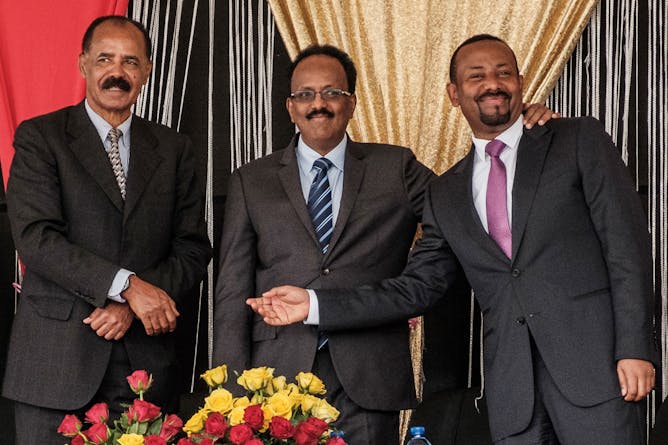
Eritrea’s President Isaias Afwerki (left), Ethiopia’s Prime Minister Abiy Ahmed (right) and Somalia’s President Mohamed Abdullahi Mohamed.
Ingo Henneberg, University of Freiburg; Sören Stapel, University of Freiburg
The proposed cooperation promises to address transnational problems within the three countries but it might alienate the rest of East Africa.
|
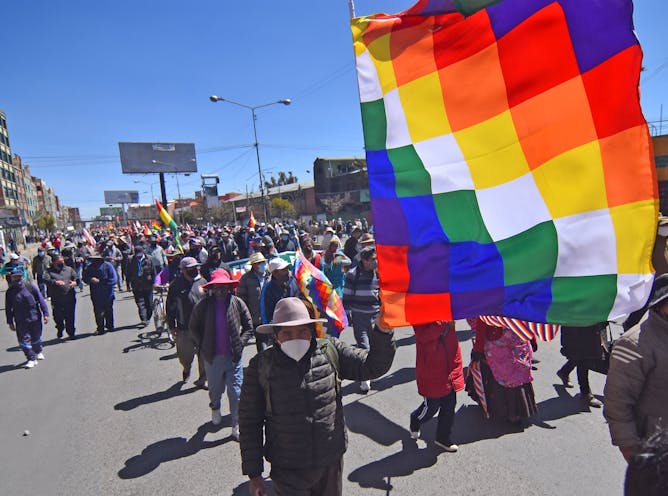
Demonstrators protest demanding the resignation of the country’s interim president Jeanine Añez in El Alto, Bolivia, August 14 2020.
EPA-EFE/STR
Kathryn Ledebur, University of Reading; Linda Farthing, University of Reading; Thomas Grisaffi, University of Reading
Bolivia's drug control strategy was once internationally applauded.
|
Politics
|
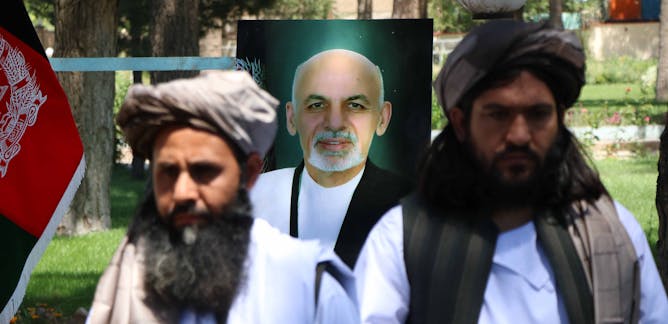
Kaweh Kerami, SOAS, University of London
After months of delays, talks between the Taliban and Afghan governnment are due to start in Doha. Here's what is on the table.
| |
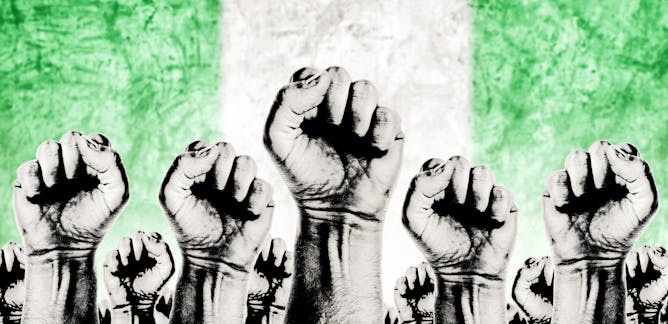
Bright Alozie, West Virginia University
Nigerian women have successfully used their naked bodies as an instrument of power, rather than shame, to protest injustice.
|
|
|
COVID-19
|

Laurence Roope, University of Oxford; Philip Clarke, University of Oxford
Without a clear plan, valuable time will be lost.
| |

Thomas J. Hrach, University of Memphis
Journalists use real people's stories to 'humanize' the news. But these tales – whether harrowing or heartwarming – can be misleading about the pandemic's greatest threats.
|
|
|
Environment
|
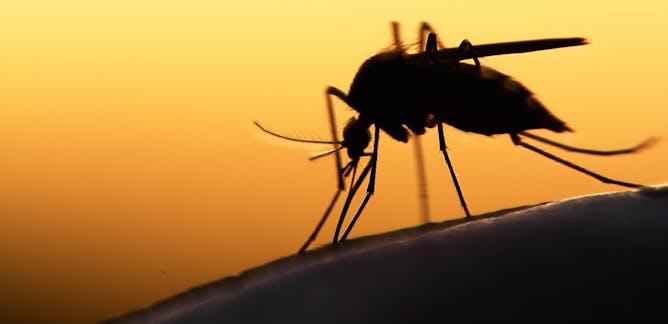
Mark Smith, University of Leeds; Chris Thomas, University of Lincoln
We modelled surface water across Africa to show which parts of the continent are climatically-suitable for malaria – and how this will change.
| |
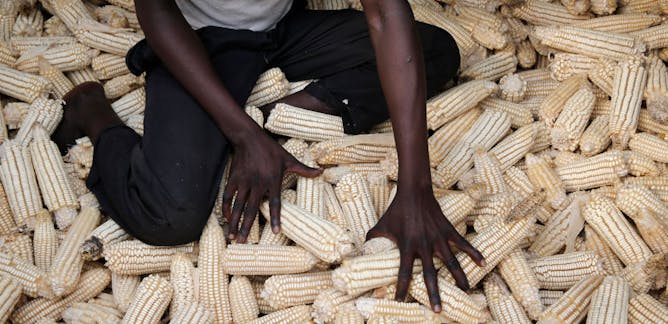
HyeJin Lee, Konkuk University
Low productivity is one of the biggest challenges facing Uganda's maize industry. But smallholder farmers still won't adopt improved seed.
|
|
|